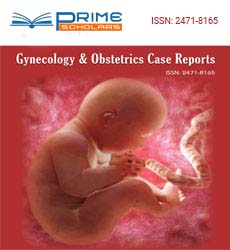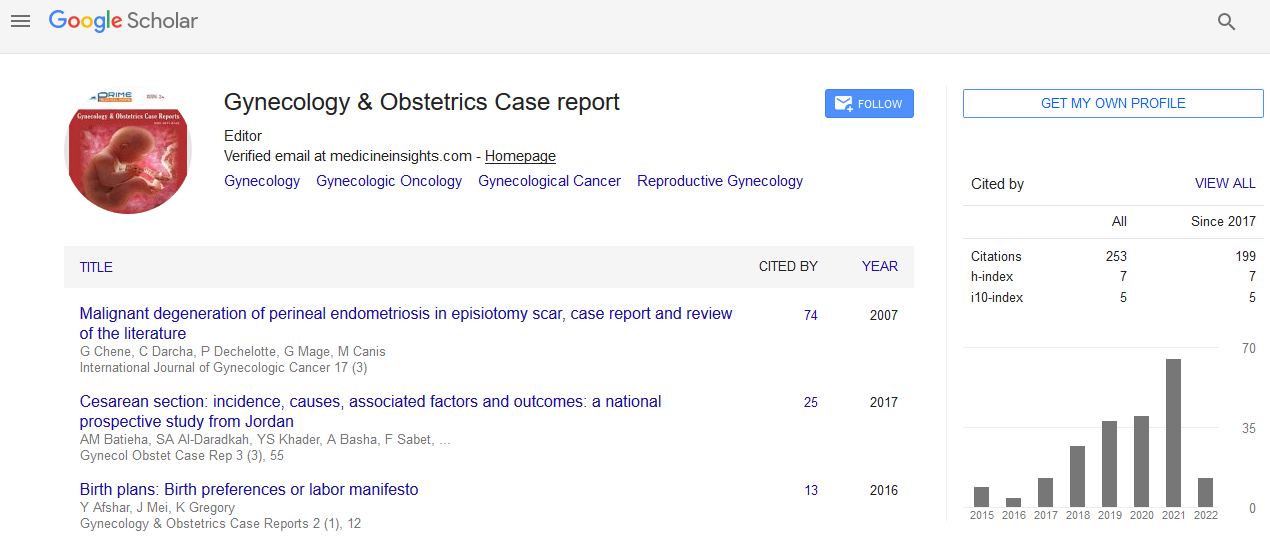Graham J*,
Department of Gynecology and Obstetrics, Leiden University of Medicine, Netherlands
- *Corresponding Author:
- Graham J
Department of Gynecology and Obstetrics,
Leiden University of Medicine,
Netherlands
Tel: +31-765456782
E-mail: grahamjean7623@gmail.com
Received Date: August 09, 2021; Accepted Date: August 23, 2021; Published Date: August 30, 2021
Citation: Graham J (2021) Perinatal Depression in Pregnant Women. Gynecol Obstet Case Rep Vol.7 No.8:153
Perinatal depression is a depression that happens during or after pregnancy. The manifestations can go from gentle to serious. In uncommon cases, the manifestations are extreme enough that the soundness of the mother and child might be in danger. Perinatal despondency can be dealt with. This hand-out depicts the signs and indications of perinatal sadness and how you or a friend or family member can get help. Perinatal misery is a disposition problem that can influence ladies during pregnancy and after labour. "Perinatal" alludes to the time previously, then after the fact the introduction of a kid.
Perinatal discouragement incorporates sorrow that starts during pregnancy (called pre-birth depression) and misery that starts after the child is conceived (called post birth anxiety). Moms with perinatal despondency experience sensations of outrageous trouble, nervousness, and weakness that might make it hard for them to do day by day undertakings, including really focusing on themselves or others. Perinatal discouragement is a genuine clinical disease and can influence any mother—paying little heed to age, race, pay, culture, or training. Ladies are not to fault or to blame for having perinatal depression: it isn't welcomed on by anything a mother has or has not done. Perinatal depression doesn't have a solitary reason.
Examination recommends that perinatal gloom is brought about by a blend of hereditary and natural components. Life stress (for instance, requests at work or encounters of past injury), the physical and passionate requests of childbearing and really focusing on another child and changes in chemicals that happen during and after pregnancy can add to the improvement of perinatal misery. Moreover, ladies are at more serious danger for creating perinatal wretchedness in the event that they have an individual or family background of misery or bipolar problem or then again in the event that they have encountered perinatal sadness with a past pregnancy.
Signs and symptoms
A few ladies might encounter a couple of indications of perinatal sorrow; others might encounter a few side effects. A portion of the more normal side effects of perinatal misery include:
- Persevering tragic, restless, or "void" mind-set
- Irritability
- Sensations of responsibility, uselessness, sadness, or vulnerability
- Loss of interest or joy in diversions and exercises
- Exhaustion or unusual abatement in energy
- Feeling anxious or experiencing difficulty standing by
- Trouble focusing, recollecting, or deciding
- Trouble resting (in any event, when the child is dozing), arousing promptly toward the beginning of the day, or sleeping late
- Strange craving, weight changes or both
- Hurts or torments, cerebral pains, spasms, or stomach related issues that don't have an unmistakable actual reason or don't ease even with treatment
- Inconvenience holding or framing a passionate connection with the new child
- Constant questions about the capacity to really focus on the new child
- Considerations about death, self-destruction, or hurting oneself or the child
Just a health care provider can assist a lady with deciding if the side effects she is feeling are because of perinatal sadness or something different. It is significant for ladies who experience any of these indications to see a medical care supplier.

